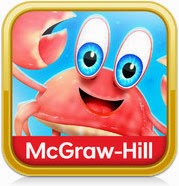Question: What is the best way to study for the Praxis? When do you think is the best time to take the Praxis so that a student isn't overwhelmed with exams and comps at the same time? Was it difficult to manage studying that on top of other coursework and exams?
Answer: For the Praxis, I used the yellow and purple book ("Advanced Review of Speech Language Pathology"). ETS also sells practice tests that are very helpful to take before the actual test! Overall, my program prepared me well for the Praxis. I did not have to do a significant amount of additional studying. However, everyone is different in terms of their program preparation level, multiple-choice test-taking skills, etc. Many students in my program chose to take the Praxis during winter break between on-campus clinic and off-campus clinic. Our university was closed from about December 18th-January 22nd. I took it during my first off-campus practicum. At that point, I was done with all of my courses and did not have any other exams to study for.
Question: When did you start your job hunt for a CF? Did you reach out to specific institutions or did you simply respond to online job postings? Do you feel there is a lot of competition out there for medical CF positions?
Answer: I started looking right before my second off-campus placement began. I reached out to both specific schools and looked online. I feel that there is a lot of competition for medical CF positions. I have heard that it is easier to find a CF at a skilled nursing facility than a hospital.
Question: What do you think is the best way to network during grad school?
Answer: Have good relationships with your clinical supervisors! This is so important because they are the people that will be your references. Also, if you love your off-campus placement(s), definitely consider a CF there if one becomes available. Always be professional (e-mails, in person meetings, etc.) with everyone you meet...that was emphasized a lot to us.
Question: What is the best advice you received in grad school about clinicals, CF year, getting through classes, and being successful?
Answer: I received a lot of great advice:
-Be compassionate toward your clients
-Be organized and don't procrastinate
-Always treat others with respect and act professionally
-Don't stress the small stuff
-Be passionate about what you do
-Individualize sessions for your clients; tailor materials to their needs
-Look for resources...there is so much out there!
Question: Do you think it's necessary to study a lot and review past notes prior to starting grad school?
Answer: From my experience, no. I guess this depends on whether you have some basic knowledge of speech pathology, completed pre-reqs, etc. My undergraduate majors were linguistics and psychology. I completed four prerequisite courses before starting grad school. However, I don't want to discourage people from looking over past notes if they feel they need to.
Question: What was the biggest adjustment going from undergrad to grad?
Answer:
-Paperwork! Clinical writing is very different from English essays.
-More pressure to perform and do well
-"Hands on" work vs. theory learning
-Overall higher expectations
Question: At your school, were supervisors helpful in aiding you in figuring out lesson plan ideas for clients?
Answer: Yes. They provided both general directions for how to conduct treatment sessions as well as specific ideas for games/activities.
Question: This might be silly but..Did you ever have any free time in grad school or were you basically always studying or preparing?
Answer: Depended on the semester! If I only had classes (no practicum), I had free time. During the practicums, free time was generally more limited.
Question: What was the most stressful part of beginning grad school?
Answer:
-Not knowing what to expect
-Being nervous that it would be overwhelming
Question: What materials do you recommend purchasing or having with you for your first week of grad school classes?
Answer: Similar materials as undergrad classes:
-Notebooks
-Binders
-Laptop (not absolutely necessary, but a big help...does not need to be new and fancy)
-Medium-large size bag or backpack
Question: What helped you study to retain information the best? Did you ever feel like you didn't remember it all? And was it all worth it?
Answer: I studied by rewriting a lot of my notes/information from PowerPoint slides provided in class. That is what helped me retain information best. I would also take notes on material from textbooks. Try to keep your notes/handouts from class really organized (make binders for each subject) so that you can quickly refer back to them. You do not need to remember every single detail, just make it easy for yourself to find information you need quickly. I definitely feel grad school was worth it!
Question: Do CFYs normally begin right after graduation?
Answer: I am beginning my CFY a few weeks after I graduate. I don't know if that is the case for all new graduates though.
GOOD LUCK IN GRAD SCHOOL!!!


































